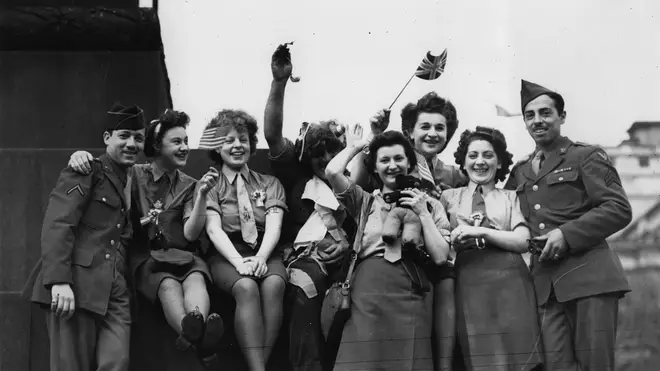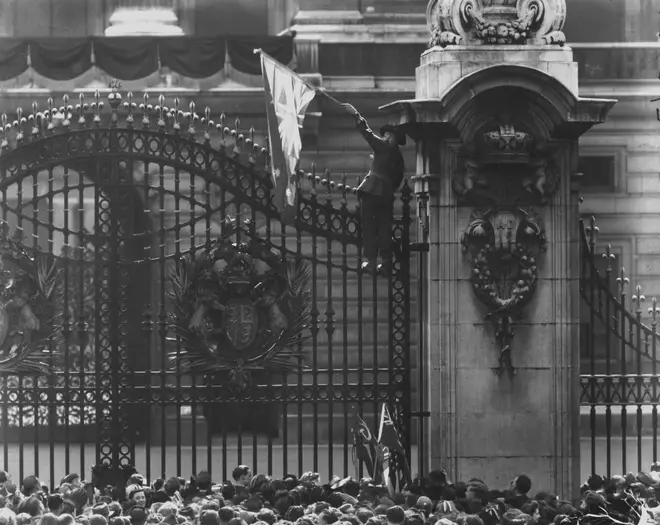
Shelagh Fogarty 1pm - 4pm
6 May 2020, 16:45
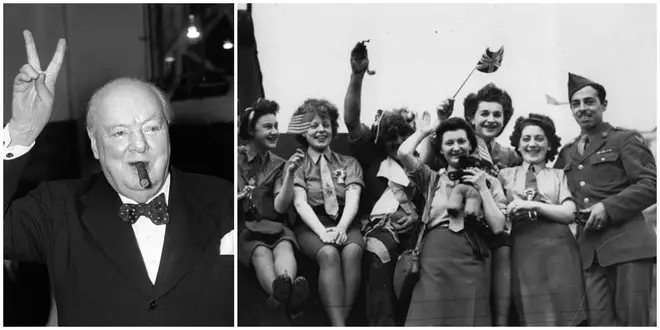
On Friday, 8th May, we will celebrate the 75th anniversary of VE Day, when Europe came together in jubilant celebration over the defeat of the Nazis.
World War Two had been bloody and long, leaving no family untouched by grief and suffering, entire cities burning and cultures left torn and tattered by the atrocities perpetrated by Hitler's armies.
The six years of fighting had killed millions across the globe, and millions more had died in the concentration camps and gas chambers built by the Nazis.
340,000 British soldiers gave their lives in the fight, and more than 70,000 civilians died as their homeland was ravaged by enemy bombing raids.
But when the bells of victory finally rang out over Britain, the country did not hesitate in filling the streets up and down the country to reunite with their neighbours, loved ones and friends to come back together and grieve for those lost and celebrate the Allies' victory.

VE Day and night celebrations
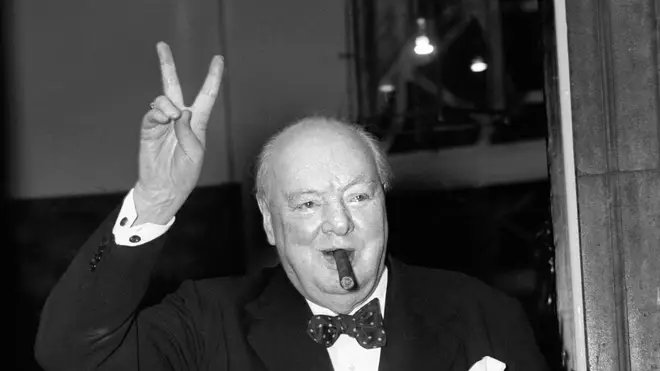
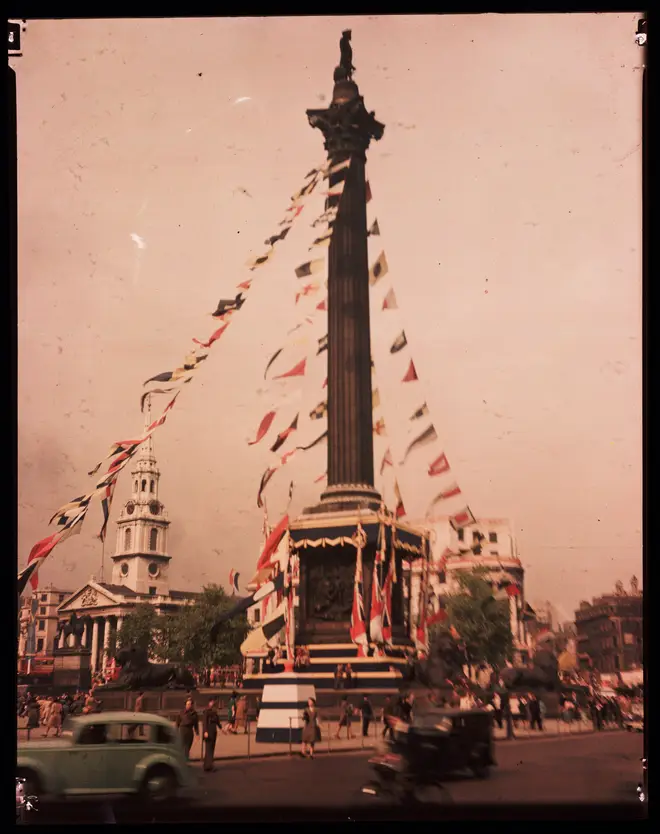
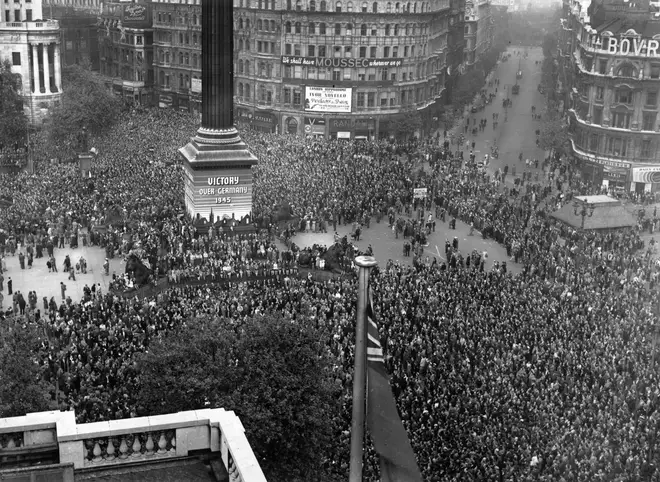
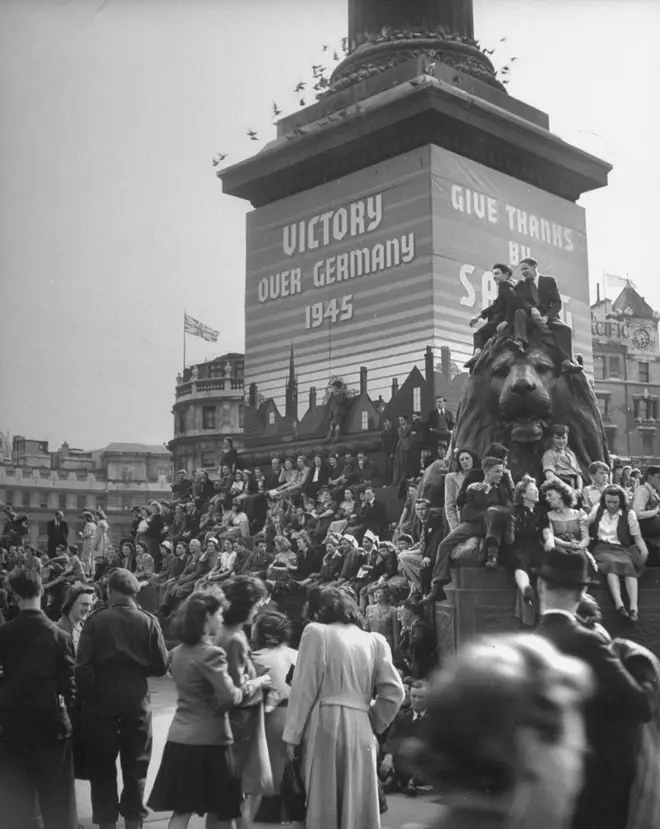
The Nazis surrender had not come as a surprise, and their defeat had been anticipated for some time, so when the news was finally read out on 7 May 1945, and it was announced the following day would be a national holiday, titled Victory in Europe Day.
London, which was the worst hit part of the country, sprang into life, with some soldiers and workers from all over the Commonwealth and other Allied nations deciding to camp in Trafalgar Square overnight to ensure they got the best vantage point for what was to come.
Soldiers sang in the streets, women and children danced in their homes and among street parties held along the length and breadth of the nation, all with one unifying cause - they were finally through the end of the war.
In Piccadilly Circus alone more than 50,000 people gathered to drink together, dance and forget the worries of the past six years for a night.
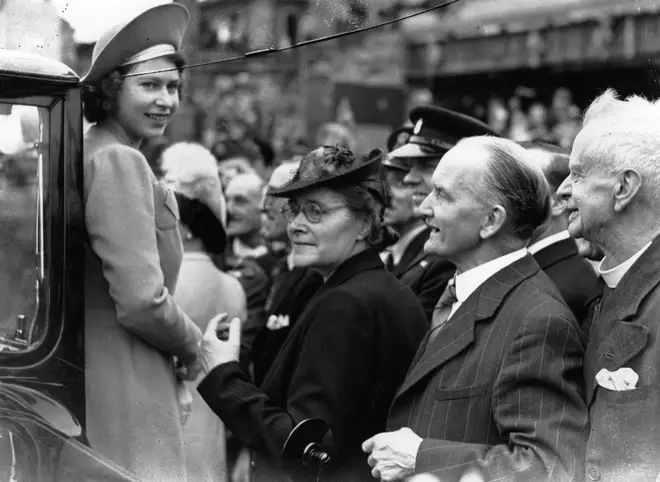
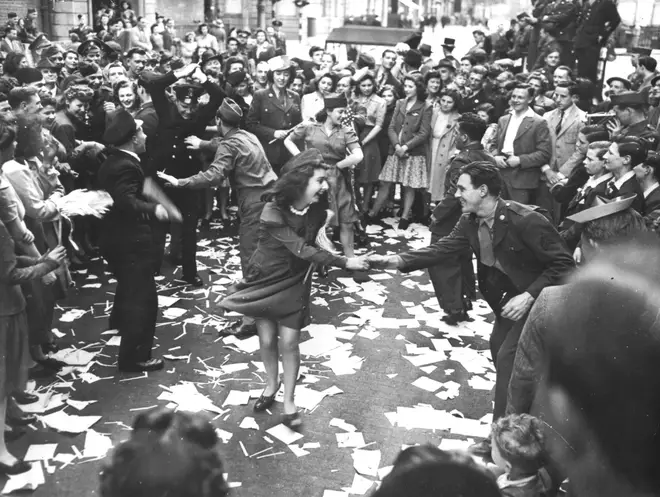
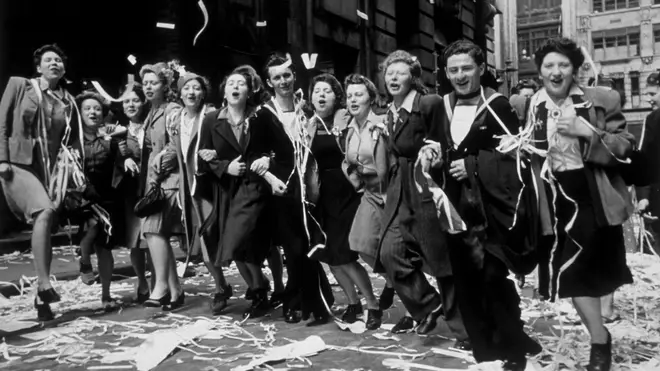
Pubs were allowed to extend their licensing hours, music halls were allowed to remain open into the early morning to ensure everyone got their hands on a celebratory drink.
Winston Churchill, regarded by many as the man who won us the war, made an appearance on the balcony of the Ministry of Health to speak to the men and women who had all done their bit in the war effort.
In a speech, he said: “My dear friends, this is your hour. This is not victory of a party or of any class. It’s a victory of the great British nation as a whole. We were the first, in this ancient island, to draw the sword against tyranny.
"After a while we were left all alone against the most tremendous military power that has been seen. We were all alone for a whole year.
"There we stood, alone. Did anyone want to give in?", to which the crowd shouted “No!”
He asked them: "Were we down-hearted?", to which they again cried "No!".

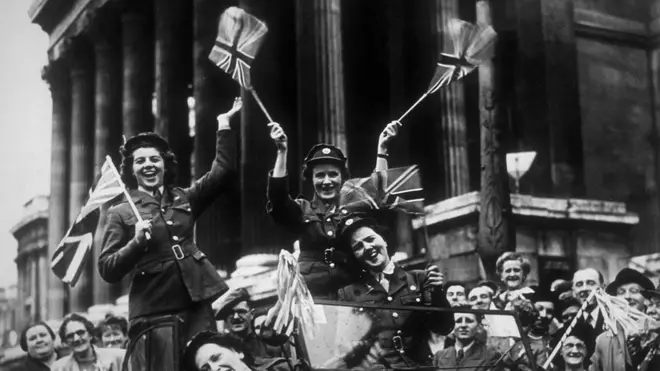
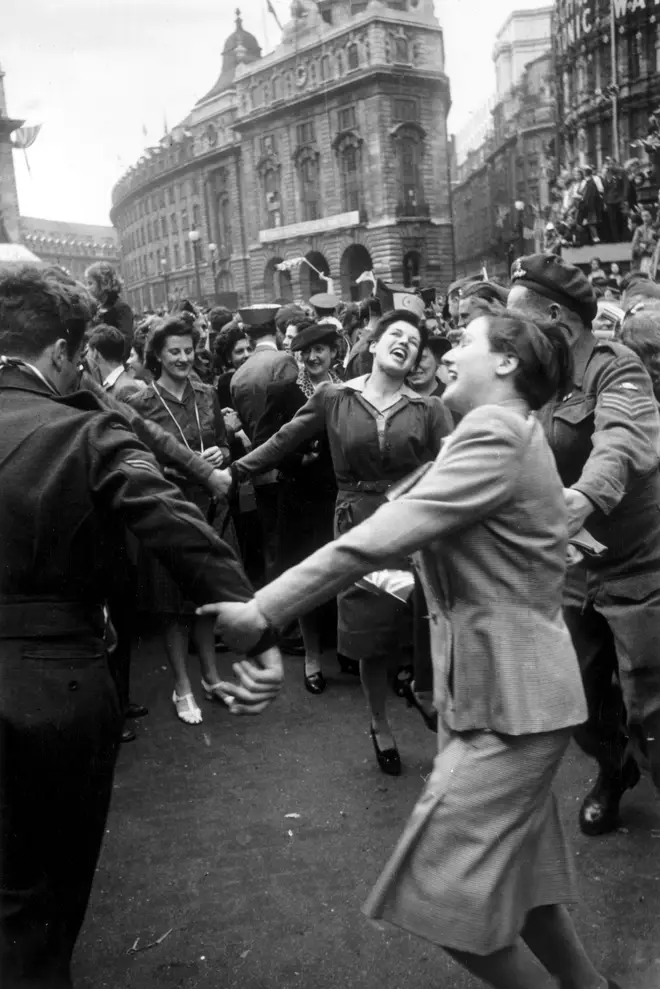
Mr Churchill continued" The lights went out and the bombs came down.
"But every man, woman and child in the country had no thought of quitting the struggle. London can take it. So we came back after long months from the jaws of death, out of the mouth of hell, while all the world wondered.
"When shall the reputation and faith of this generation of English men and women fail? I say that in the long years to come not only will the people of this island but of the world, wherever the bird of freedom chirps in human hearts, look back to what we’ve done and they will say 'do not despair, do not yield to violence and tyranny, march straightforward and die if need be-unconquered.'
"Now we have emerged from one deadly struggle-a terrible foe has been cast on the ground and awaits our judgment and our mercy."
The Royal family also played a key part in the celebrations.
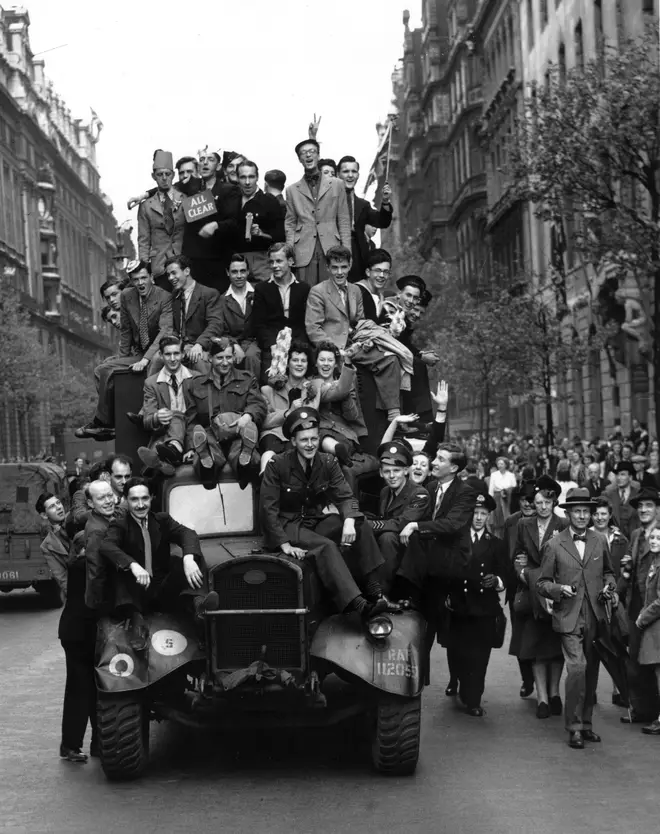
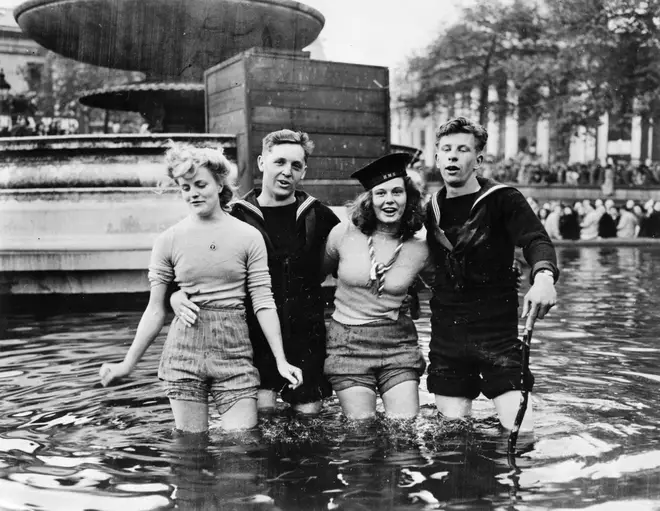
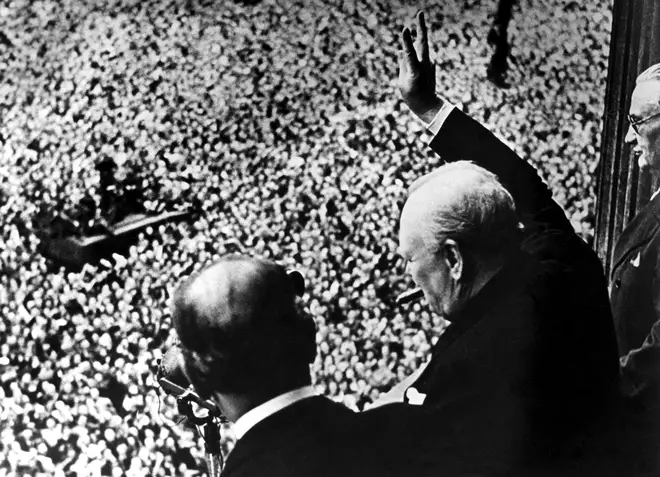
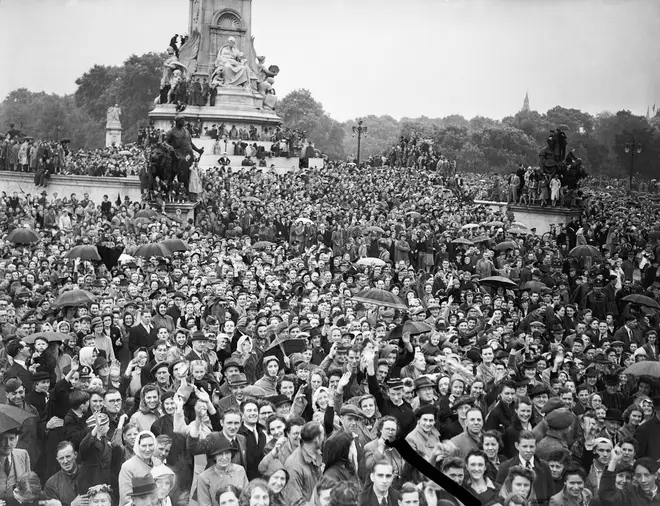
Hundreds of thousands of people gathered at the Mall outside Buckingham Palace to catch a glimpse of King George VI, Queen Elizabeth, and the Princesses Elizabeth and Margaret.
In total the family made eight appearances at the balcony that day - including once with Winston Churchill.
On the final appearance, the-then Princess Elizabeth and Princess Margaret were allowed to leave the Palace and go into the vast crowds anonymously, to experience the celebrations for themselves.
Princess Elizabeth later recalled: "We stood outside and shouted, 'We want the King'… I think it was one of the most memorable nights of my life."
King George himself also spoke on the occasion, paying tribute to those who were not able to be a part of the celebrations.
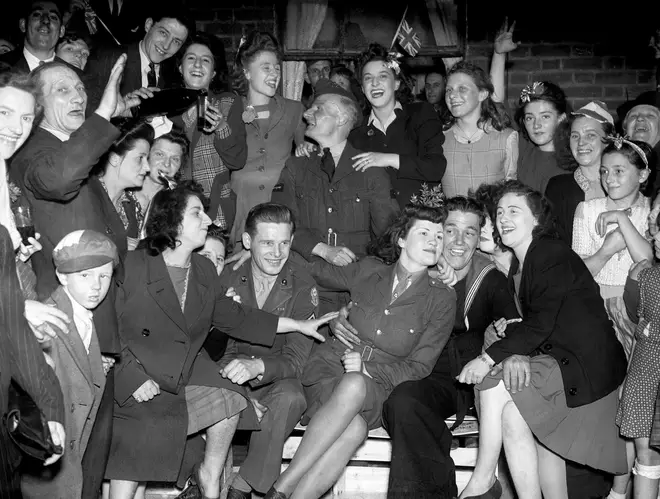
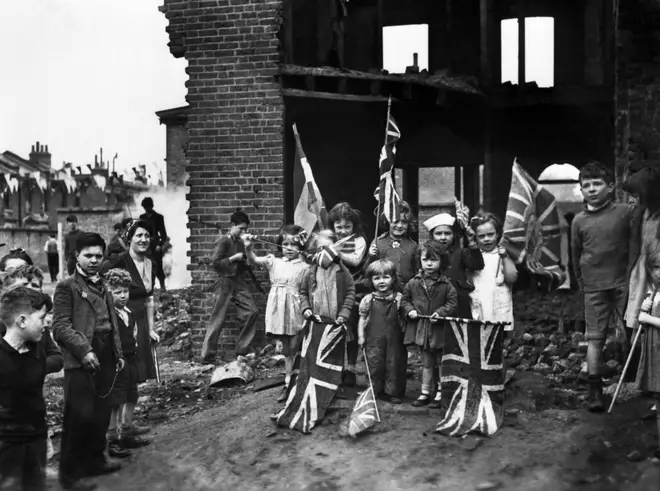
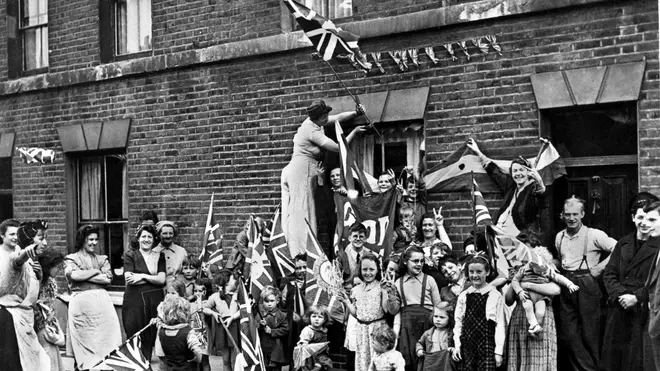
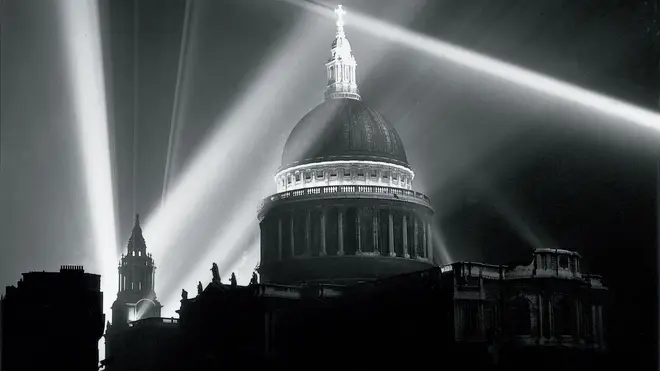
He said: "Let us remember those who will not come back…let us remember the men in all the services, and the women in all the services, who have laid down their lives.
"We have come to the end of our tribulation and they are not with us at the moment of our rejoicing."
And his somber tone struck a cord for many, who had lost their husbands, their wives, children, brothers, sisters, or friends.
And it was also a bittersweet day for those who had family still serving abroad.
Those stationed in the far east still had months of fighting left, and it wouldn't be until August when Japan surrendered and the last fighters were finally able to be returned home.
